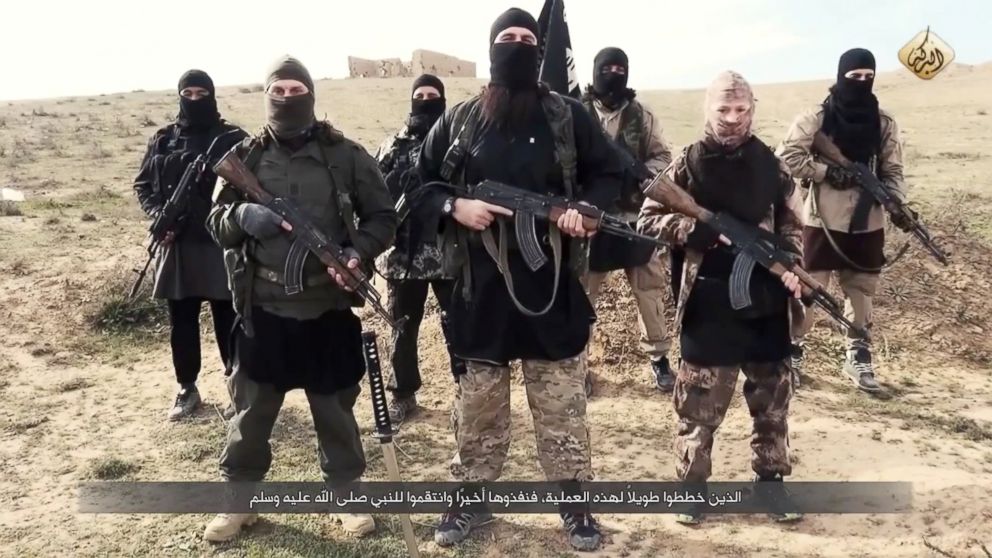he attacks on Charlie Hebdo in France woke up many citizens in Europe to the ever present threat of Islamic terrorism, not just in the Middle East, but in their own towns and cities. Particularly shocking to many is the fact that the men behind the attack are French citizens themselves. This shows, what military experts have been warning about for a long time, namely that terror networks like Al-Quaida and ISIS are active globally and have fighters ready to strike in the capitals of western cities on command. Perhaps it is time to update our counter terrorism strategy based on the hard facts obtained from the profile of terrorists.
Governments and intellectuals have been greatly mistaken about the source of Islamism and the environment in which it grows. Conventional political discourse on the topic, insisted, that Islamism and other forms of radicalism, are persistent in societies scourged by poverty and political instability. At first glance it appears to be a reasonable assessment. Trapped in poverty and left with no way out of systematic misery, desperate individuals turn towards radical groups, who promise a glorious future. The problem is thus not ideological radicalism itself, but individuals feeling of hopelessness in a brutal system. According to this theory, Islamic terrorism is thus a natural reaction to oppression and economic turmoil. Particularly Marxist intellectuals and think tanks have been pointing to capitalist economic exploitation as the root cause of extremism and as an explanation the global rise of Islamic terrorism.
One of the most famous cases, which disproves the claims of Marxist think tanks, is that of “Jihadi John”, who rose to world infamy for his role as the face of ISIS in the execution videos of hostages seen around the web. As a report by “The Guardian” May 2nd, 2014 uncovered, Mohammad Emwazi grew up in Great Britain and was described by fellow classmates as a “shy boy” who was interested in soccer and popular in school. Emwazi went on to study at the University of Westminster in 2006 and graduated in information systems with business management . This does not fit the picture of the exploited and oppressed young man, who turns radical to fight the system. Emwazi profited from the British educational system and the openness of British culture and went to one of its most prestigious universities. He was radicalized not because of his life experience, but if anything despite of it. According to associates, he and a group of friends were drawn a prominent Imam who was preaching at a local mosque. Although he was never deeply religious, as friends noted, he was drawn into a circle of jihadists, who brainwashed the young man into becoming a mujahedin.
Emwazi’s story isn’t an exception; it’s more of a rule. Anwar Al-Awlaki a head of AL-Quaida killed by a US drone strike in 2011, received a doctorate from the University of Nebraska and represented the Muslim Students Association at the University. According to the 9/11 US Commission report, he preached in a Mosque that five hijackers attended regularly. Michael Adebolajo pursued his politics degree at Greenwich University before brutally murdering Fusilier Lee Rigby on the Streets of London in 2013. Many key figures of Islamist organizations have a University education and a considerable number received their education in western countries. Poverty, oppression and imperialism do not sufficiently explain the motives of these radicals. It also hints at another uncomfortable truth, namely that these terror attacks are not committed by lone wolves, but by fanatic militants who are part of a sophisticated global terror network.
These Cases suggest, that is that Islamism is not a product of economic exploitation or western imperialism, but of a strain of radicalism that has infiltrated Muslim communities around the world. It is not limited to small farm villages in Afghanistan; it is present in the capitals of Europe and North America, where ordinary people are recruited to perform acts of terror. More shockingly it shows that higher education is not a natural deterrent to radicalization. It might be time to address those issues that are deemed as “politically incorrect” by some Intellectuals and politicians, in order to understand the threat we are facing and evolve counter terrorism strategies appropriately.





